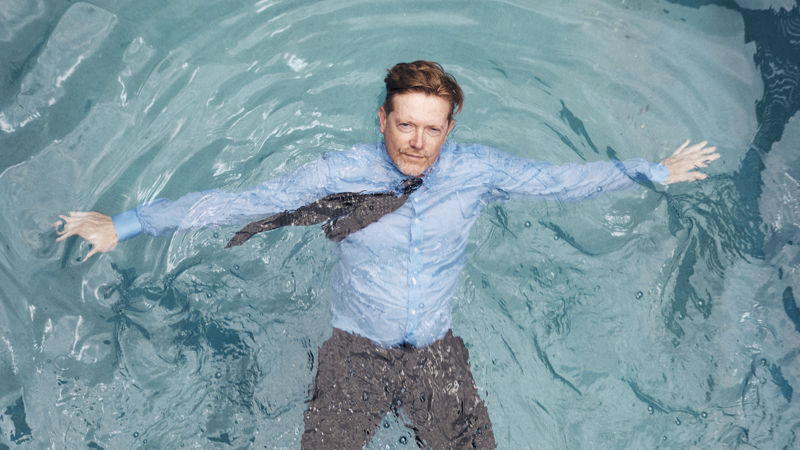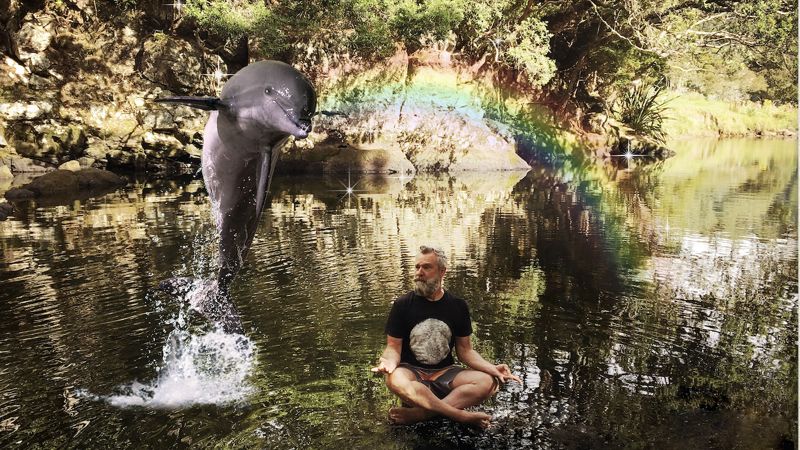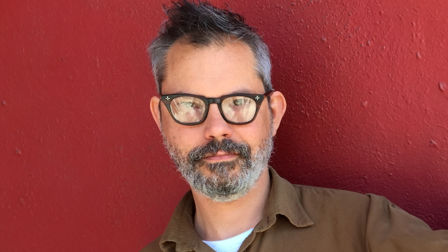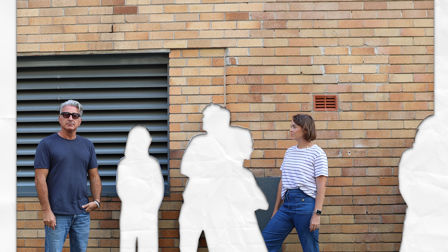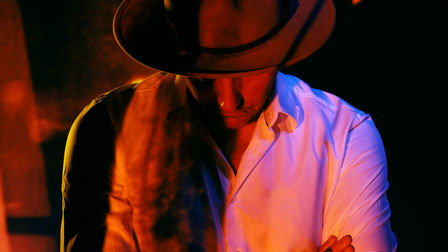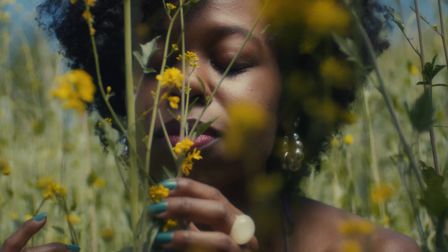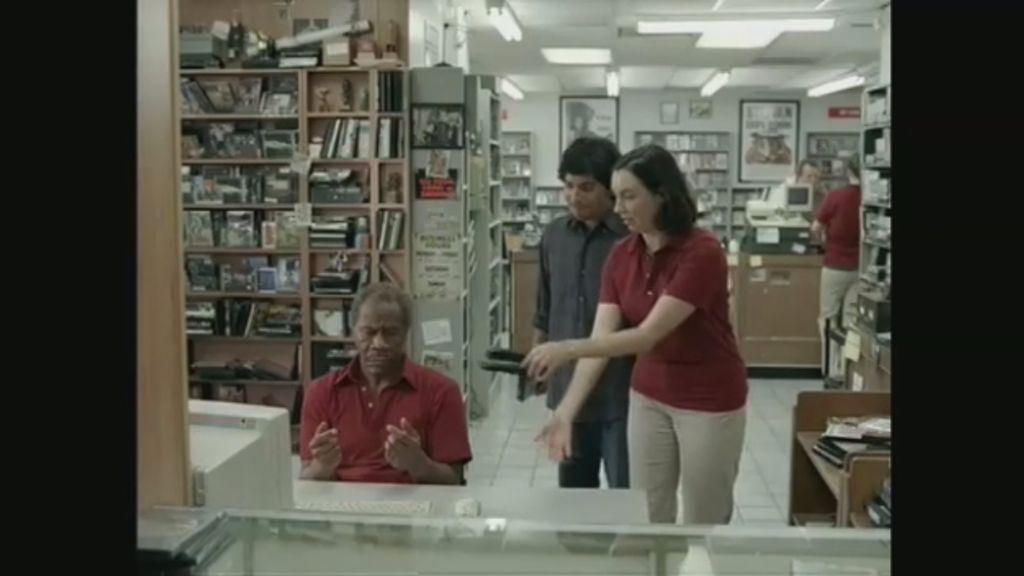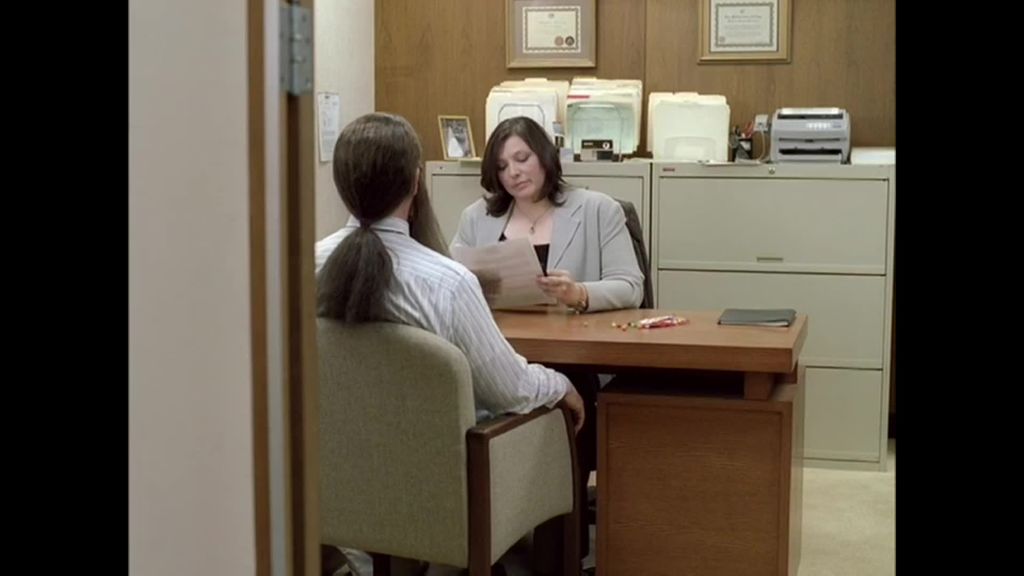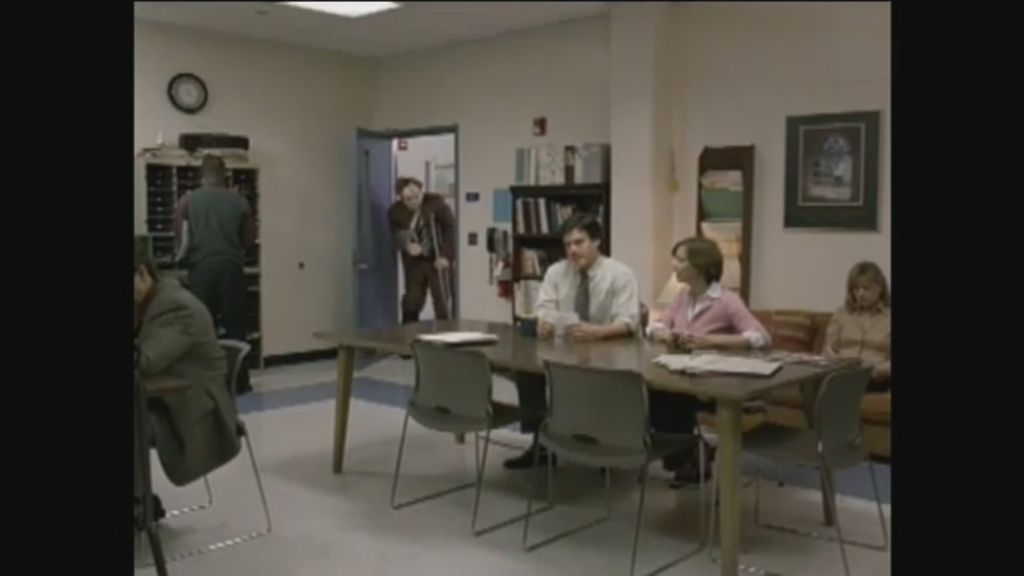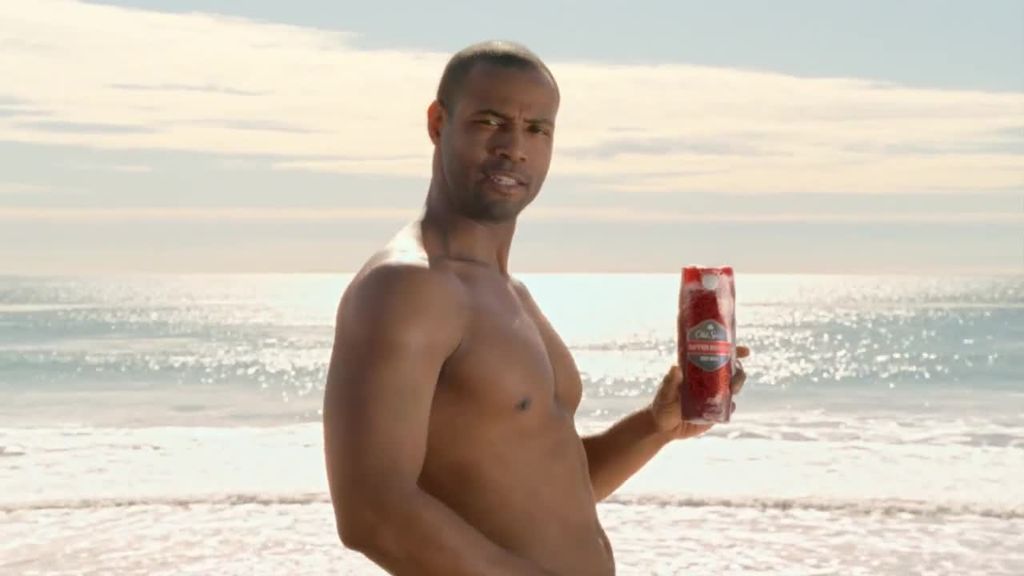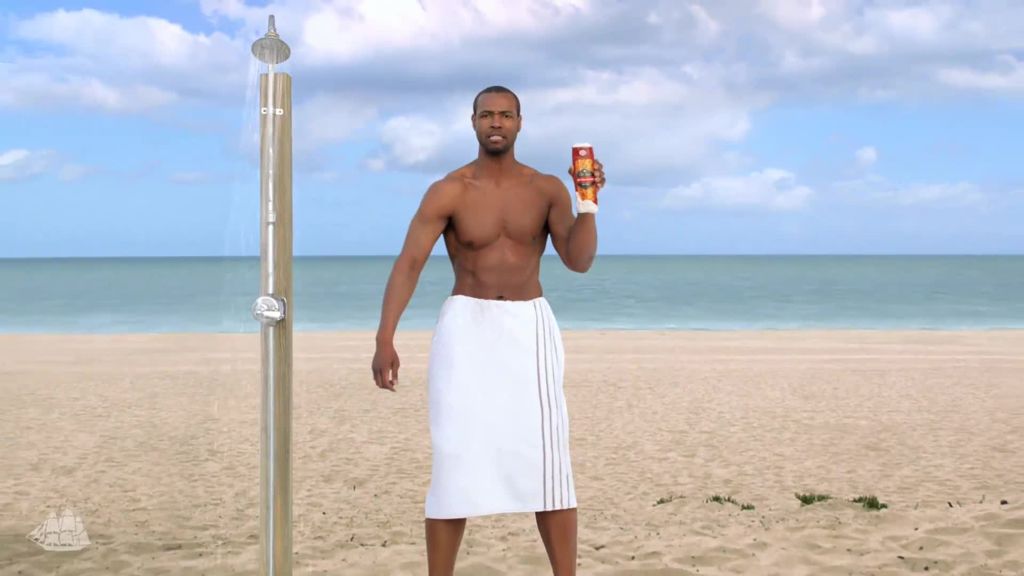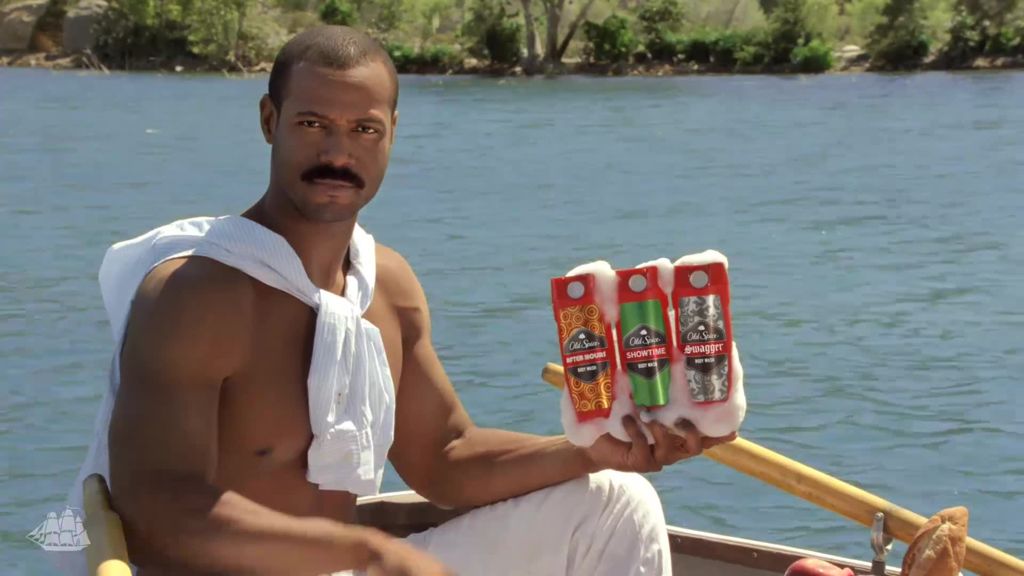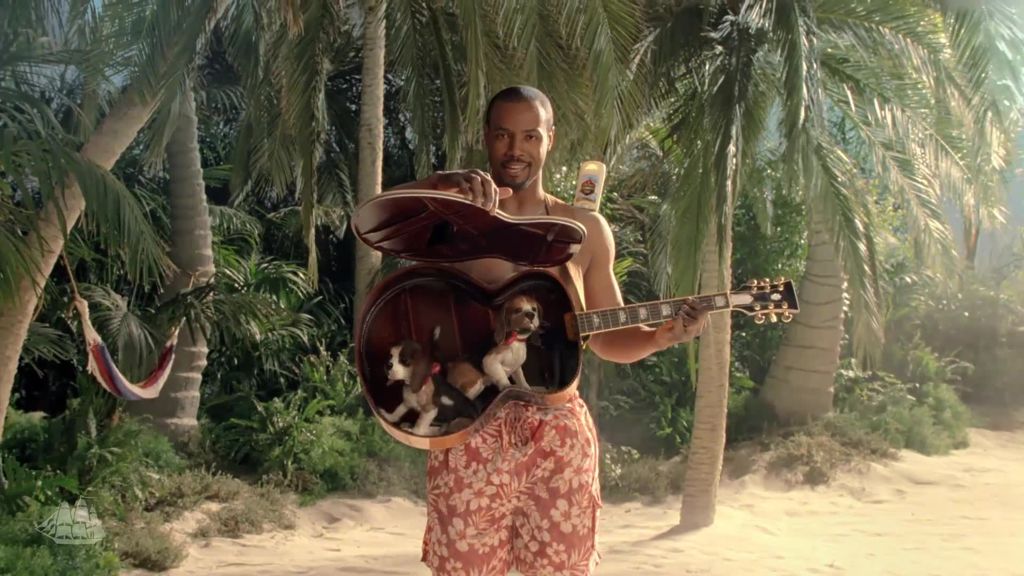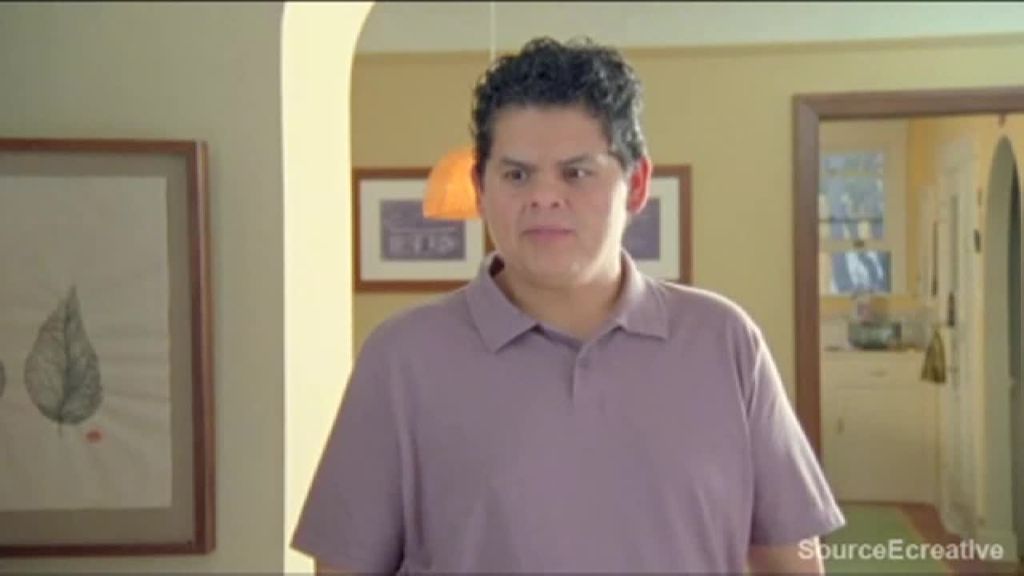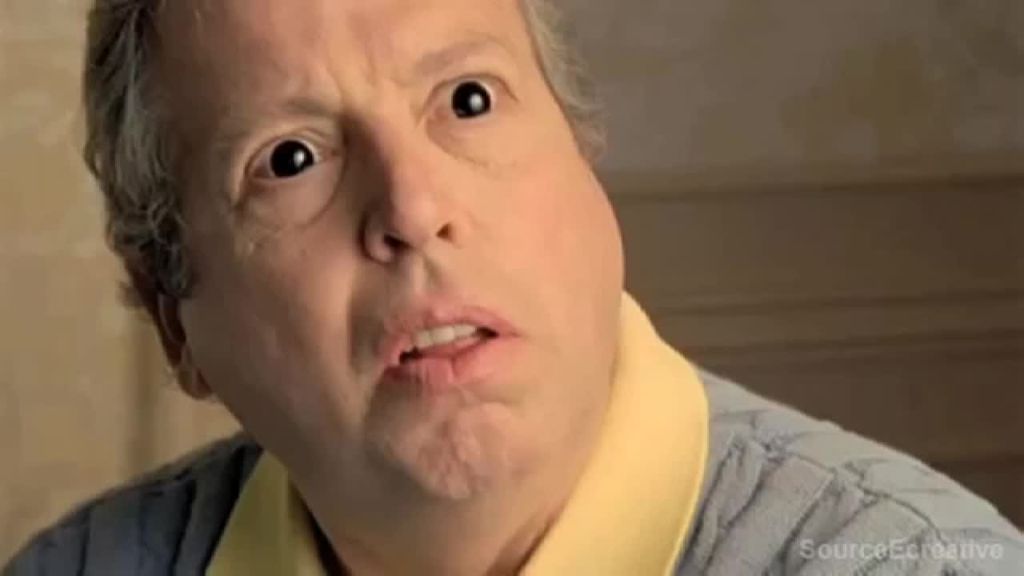The real Old Spice guy
From Smell Like A Man, Man to running his own agency, Eric Kallman speaks to Jamie Madge about creating one of the most defining comedic voices in advertising.
If you took a quick straw poll to find out people’s funniest commercials of the past 15 years, it’s a safe bet that Eric Kallman would be behind quite a few.
Even with the universally renowned Man Your Man Could Smell Like for Old Spice and classic’s like Touch, Pinata and Beard for Skittles notwithstanding, Kallman’s work for brands including CareerBuilder, Kayak and Little Caesars has more than likely tickled your funny bone at length in the past.
With a career that’s incorporated stints at TBWA\Chiat\Day, Wieden+Kennedy and Barton F Graf, his work has made him a proud owner of 2 Cannes Grands Prix, 2 AICP Best of Shows, a One Show Best of Show and an Emmy, as well as 2011’s most awarded creative in the world and the third most-pencilled copywriter in D&AD history.
Now the partner of his own agency, Erich & Kallman, his fingerprints are still all over the chucklesome work they produce. So, how did he become the industry’s go to ‘funny guy’?
Credits
powered by
- Agency Wieden + Kennedy/Portland
- Production Company MJZ/USA
- Director Tom Kuntz
-
-
Unlock full credits and more with a Source + shots membership.
Credits
powered by
- Agency Wieden + Kennedy/Portland
- Production Company MJZ/USA
- Director Tom Kuntz
- Exec CD Susan Hoffman
- Exec Producer Ben Grylewicz
- CD Eric Baldwin
- CD Jason Bagley
- Art Director/Writer Wieden + Kennedy/Portland
- Art Director/Writer Wieden + Kennedy/Portland
- Exec CD Mark Fitzloff
- VFX The Mill/Los Angeles
- Audio post Lime Studios
- Exec Producer Jeff Scruton
- Editor Carlos Arias
- Exec Producer Saima Awan
- DP Neil Shapiro
- Line Producer Scott Kaplan
- Film Stock
- Producer Erin Goodsell
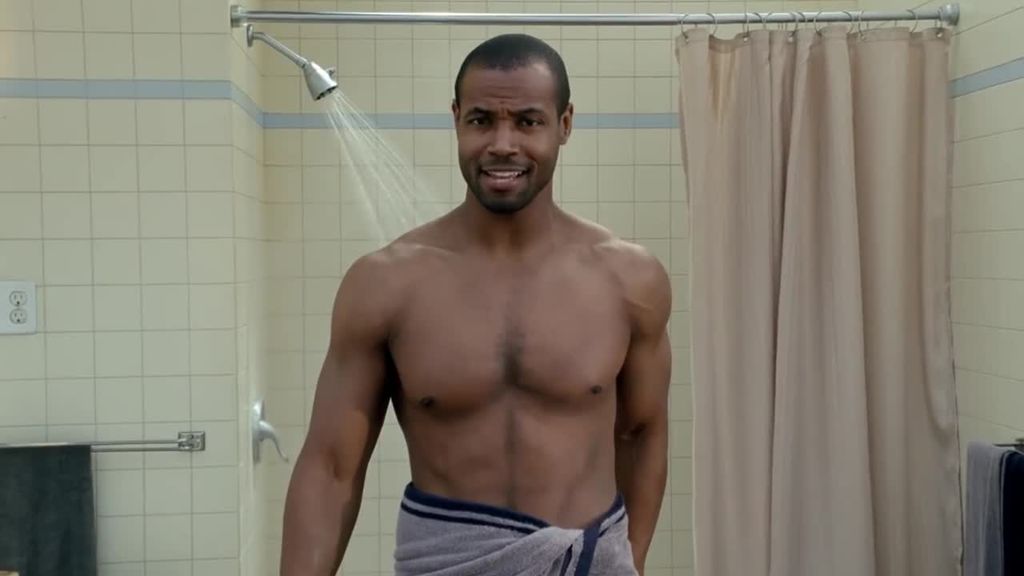
Credits
powered by
- Agency Wieden + Kennedy/Portland
- Production Company MJZ/USA
- Director Tom Kuntz
- Exec CD Susan Hoffman
- Exec Producer Ben Grylewicz
- CD Eric Baldwin
- CD Jason Bagley
- Art Director/Writer Wieden + Kennedy/Portland
- Art Director/Writer Wieden + Kennedy/Portland
- Exec CD Mark Fitzloff
- VFX The Mill/Los Angeles
- Audio post Lime Studios
- Exec Producer Jeff Scruton
- Editor Carlos Arias
- Exec Producer Saima Awan
- DP Neil Shapiro
- Line Producer Scott Kaplan
- Film Stock
- Producer Erin Goodsell
I’m still shocked that you can have a job doing this.
Kallman’s journey into advertising was anything but conventional. His family weren’t connected with adland at all - “Dad drove a beer truck and Mom was a schoolteacher: pretty normal suburbia stuff” - and entering the business wasn’t close to an ambition.
“I went to college and I studied broadcasting because, in the ‘90s, the big creative outlet was sportscasters,” he recalls. “I was trying to think about what should I do for a job: I loved sports, am good at talking and enjoy making jokes; so I studied broadcasting and journalism, thinking that would be a good fit. The only class I never took was Introduction to Advertising!”
After realising that the commercials on TV were written by actual people, Kallman thought that the industry might be somewhere to hone his talents. But where to start? “I hit the 4A’s website and looked up San Francisco,” Kallman laughs. “ I didn’t know the difference between Goodby Silverstein and Bob’s Advertising on the corner, so I just called them in a row and said, ‘Hi, I’m a recent college graduate interested in advertising, blah-blah-blah’. They all hung up on me, except for one.”
The kindly account man who brought the fresh-faced Kallman in for an interview/agency breakdown may not have added to his team, but instead inspired the budding copywriter to attend advertising school and pursue a career in the creative department. “I asked him, ‘who comes up with the actual idea for the commercial, like the script?’ And he was, like, ‘Oh, that’s the creative department.’ I’m like, ‘Well, how do you do that?’ And he goes, ‘You go to ad school.’
The only class I never took was Introduction to Advertising.
After signing up to attend Miami Ad School for one quarter of the course (“It’s all I could afford”), everything just clicked. “I went to sit in on a class: Concepting 101. The teacher gave a brief, like a brand, and the kids had to think of 30 ideas for an ad, put each one on a piece of paper and tape them up on the wall. I watched them do it and thought, ‘look, I’m really bad at a lot of things in life but, holy crap, I can do this!’ To be honest, I’m still shocked that you can have a job doing this.”
After finding his calling, the now-well-informed Kallman took his “crazy, lunatic, nuts” portfolio back to the agencies and started firing them out, first to his A-list, then B, then C, to try and get a bite, “I was just bothering people to death with emails.” Fortune struck when the CD at Chiat\Day NY, whose new Skittles Taste The Rainbow campaign had been a huge influence in graduation year, called and asked him in. “I got in there and put on a show,” says Kallman. “He said that he thought the guys working on candy might like it, so I went in there all hyped up and tried to be as funny as I could and got lucky. They hired me.”
Skittles – Touch
Skittles – Beard
Skittles – Pinata
A lot of people are known as the ‘this guy’ or the ‘that guy’. For me, it was the Old Spice guy.
After forging a path with a string of amazingly-well received Skittles spots (Beard, Touch, Stable, to name but a few), Kallman really made his name with his move to Wieden+Kennedy and his work on Old Spice. The Smell Like A Man, Man campaign came out of nowhere in early 2010 and, with initial commercial The Man Your Man Could Smell Like, reached the Holy Grail of advertising, whereby the work becomes part of the popular culture. Receiving a hugely positive response on initial launch, the spot went on to pick up the Grand Prix for film at Cannes Lions and grabbed a Primetime Emmy for Outstanding Commercial.
However, it’s the response campaign that followed soon after launch that brings back the fondest memories for Kallman. “When that blew up, Iain Tait [now ECD at W&K London] would come over often,” he remembers. “He had a big digital and social background and was fascinated with the YouTube interaction. Instead of the comments being, ‘this commercial is great’ or ‘I love this ad’, they were all talking to the character. They were all, like, ‘You’re so sexy’ or ‘You’re the coolest guy ever’. Iain said ‘You know what, you should talk back. You should film Isaiah and respond back’.”
Old Spice – Did You Know
Old Spice – Questions
Old Spice – Boat
Old Spice – Fiji
There was no blueprint for doing this; it was just amazing people who figured it out.
After several meetings discussing different ways to realise their idea (and bemoaning the fact that the technology was not yet available) a solution was established. “What happened,” Kallman explains, “is probably my favourite execution of anything I’ve been a part of in advertising. It was so team-oriented.
“A digital producer at Wieden+Kennedy got a little production facility up the street from our agency in Portland. We got the set together and, basically, stole staff from Wieden’s; people who were project managers and other stuff. People who didn’t do things like this. We planned to set up a system like an assembly line: Isaiah [Mustafa, the Old Spice Man] in front of a teleprompter, reading a response that we had written to a particular commenter, someone would edit the video, the next person would tag it to the person and anyone else who might be relevant and the video would go out there. There was no blueprint for doing this; it was just amazing people who figured it out. It was awesome.
“I remember, a day or two before, Craig [Allen, Kallman’s former creative partner] and I were flying somewhere for something else and wrote fifteen or so responses, so that when we started we could hit the ground running. Once we sat down to start filming them, we started writing for all of the new messages coming in. It was just me and Craig, on our laptops, sitting off-camera, right next to Isaiah. Craig turned to me and said, ‘Welcome to the most work we’ll ever do for a Bronze Pencil.’ We knew we were going to be really working hard for the next two days.”
[Old Spice] was one of the most fulfilling things I’ve ever worked on.
What transpired was, effectively, a 48hr creative production line, with Kallman and Allen picking comments, writing responses and pausing for filming on an endless loop. It wasn’t until the second day that they realised they might be onto something.
“By day two,” Kallman continues, “all the big bosses at Wieden+Kennedy were stopping by. We realise now that that’s because it was catching on and everyone was talking about it, but Craig and I weren’t aware of that at that time. We were so deep into the writing, we didn’t know it was a big thing.
“Towards the end of the second day, we got a call from Wieden+Kennedy PR and they were, like, ‘Hey, this thing is huge!’ We talked to people that evening, and then they told us that we should have Isaiah come to the agency tomorrow morning, for a celebration.

Above: Kallman and Mustafa on the bleachers during the company celebration
“The next day, we got up and got breakfast with Isaiah. I remember being so exhausted; we were spent. It sounds lame, but if you’re trying to write that much good stuff on demand, you get tired. We got to the agency and didn’t know what was going to happen. [The office] had bleachers like a sports stadium for company meetings. We got there and found that these bleachers and rails were packed! People started going nuts around Isaiah: taking pictures with him with his shirt off. Everyone was so happy. I truly felt like part of a great team.
“It was cool was because so many people who had never worked together; who’d never done something like that before; made something great. It turned into a big thing that was so much bigger than everyone involved. I think that was one of the most fulfilling things I’ve ever worked on.”
I literally communicate exactly what I’m asked to communicate.
Despite a reputation as one of adland’s comedy heroes, Kallman is quick to acknowledge that what he makes aren’t sketches “It’s not like I was a guy into surreal comedy my whole life and I’m now executing it,” he explains. “[With advertising] you’re always trying to break through. In my opinion, every good commercial needs something visual. You can have a great piece of writing that makes for a great radio commercial, but if you’re going to break through [on TV or online], you need to take advantage of the fact that you have something for someone to look at.
“It’s one of the things I say to young creatives when they’re writing TV scripts: make the most of the fact that you get to write radio scripts all of the time when you’re junior, but now create something that people will see and remember. How are you going to get someone’s attention?
Proof, if proof were needed, of this can be seen in every piece of Kallman’s work; be it the explosive transformation of a desk into candy, the transition of a handsome man onto a horse’s back or the shared neck-hole of a sweater - “it’s literally the manifestation of trying to get people to pay attention to what you’re saying”.”
Kayak.com – 5 Man Search
Kayak.com – Pupils
Kallman’s distilling of an idea to an instant visual message is, in his mind, what makes the work successful. “I don’t take the brief - the most important thing the client wants us to communicate - and elevate it to a bigger elaborate thought. I literally communicate exactly what I’m asked to communicate. I just try and do it in a way that I think will be as entertaining as possible.”
So, no great plans to move onto longer-form comedic work? “I like how that style plays in the medium,” he counters. “If there was Kayak: The Movie, or Little Caesars: The Movie or Skittles: The Movie, I think it would kind of get boring. It would just be a big surreal crazy mess instead of an awesomely constructed storyline. But in the 15- or 30-second space, if the joke’s great and there’s something great visual to look at, that’s enough.”
There’s no risk-taking in the creative product. That’s why ads, at least here in America, are terrible.
After rewarding stints at TBWA, W+K and Goodby Silverstein, plus helping to found Barton F Graf with Gerry Graf, Kallman took the biggest risk of his career and launched Erich & Kallman in 2016. “I love now that I have my own shop,” he says. “I get to work on everything and get really excited about a new brand or a new product.”
So, what was the reason to go independent? “Well, agencies themselves are putting more emphasis on the strategy than the creative output. I think it’s basically because you can get data to help inform a strategy, but when you think of a creative idea, who knows if people are going to like it or not? It’s an easier thing to sell to clients. Unfortunately, that means no emphasis or risk-taking in the creative product. That’s why ads, at least here in America, are terrible.”
Credits
powered by
- Agency Erich & Kallman/San Francisco
- Production Company Arts & Sciences
- Director Mike Warzin
-
-
Unlock full credits and more with a Source + shots membership.
Credits
powered by
- Agency Erich & Kallman/San Francisco
- Production Company Arts & Sciences
- Director Mike Warzin
- Creative Director Eric Kallman
- Art Director Rob Stone
- Copywriter Patrick Newman
- Editing Company Arcade Edit
- Executive Producer Crissy DeSimone
- Editor Sean Lagrange
- VFX Company Timber
- Creative Director/Partner Jonah Hall
- Creative Director/Partner Kevin Lau
- Executive Producer Sabrina Elizondo
- Nuke Michael Loney
- Audio Post Company Susie Cobb
- Sound Designer/Audio Mixer Ben Freer
- Executive Producer Melissa Elston
- VFX Supervisor Jeff Willette
- Flame Artist Miles Kinghorn
- Producer Susie Cobb
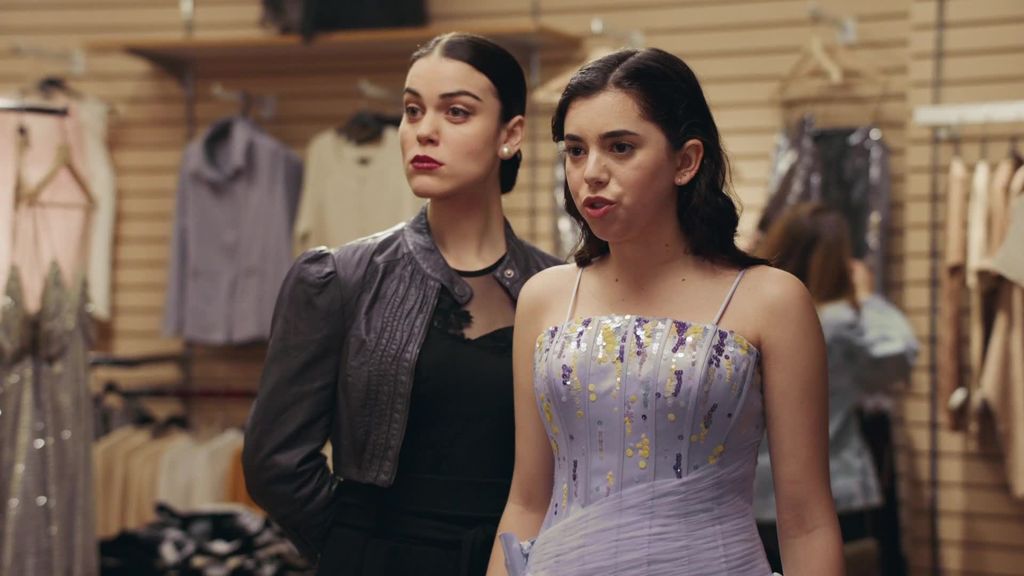
Credits
powered by
- Agency Erich & Kallman/San Francisco
- Production Company Arts & Sciences
- Director Mike Warzin
- Creative Director Eric Kallman
- Art Director Rob Stone
- Copywriter Patrick Newman
- Editing Company Arcade Edit
- Executive Producer Crissy DeSimone
- Editor Sean Lagrange
- VFX Company Timber
- Creative Director/Partner Jonah Hall
- Creative Director/Partner Kevin Lau
- Executive Producer Sabrina Elizondo
- Nuke Michael Loney
- Audio Post Company Susie Cobb
- Sound Designer/Audio Mixer Ben Freer
- Executive Producer Melissa Elston
- VFX Supervisor Jeff Willette
- Flame Artist Miles Kinghorn
- Producer Susie Cobb
Taking up the Founder/Creative Director mantel hasn’t reduced Kallman’s presence in the pitch process, however. “The other creatives in my place probably hate it,” he laughs, “because they compete against me more than anybody else. I still love doing it. I get such a kick out of thinking up an idea or working with other creatives to think up ideas, then working with directors in actually creating it - seeing it through from start to finish. It’s so fun for me. I don’t have any deep need for the other stuff.”
So, almost three years later, has the risk paid off? “It’s a sweet gig! I’m my own boss - I don’t answer to anybody, I think of fun stuff, I go and make the fun stuff and then I get to put it out in the world and see how people react to it.”
“It’s a pretty fulfilling deal.”
)
